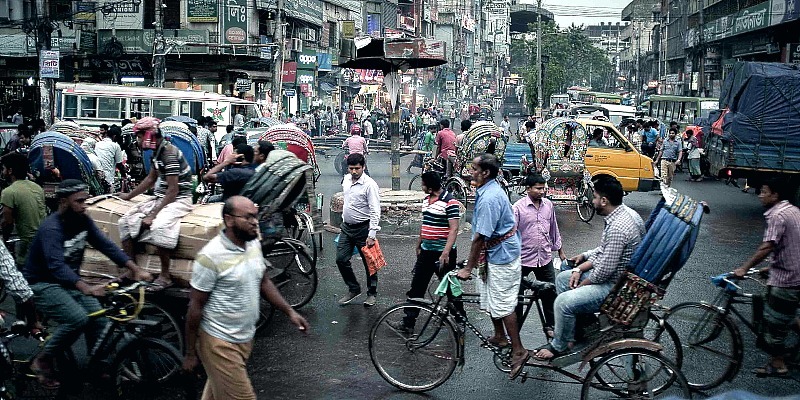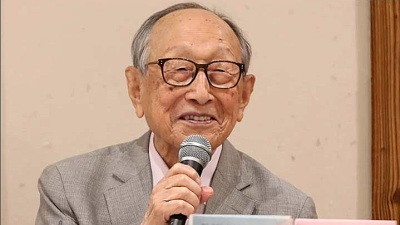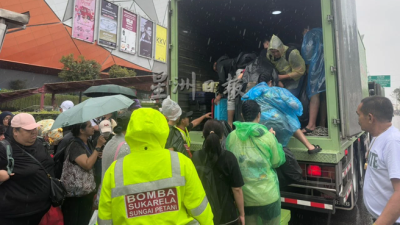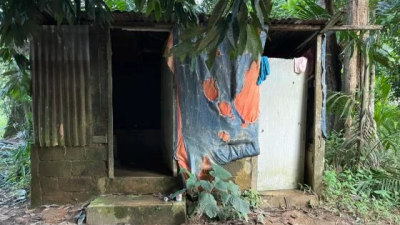A few days ago, I woke up to a disturbing message from a friend who had migrated to the US, “You should really work on getting a second passport for all three of you.”
A few years ago, I would have just laughed it off, as I have done many times when such suggestions have been thrown at me by paranoid expatriate Bangladeshis obsessed with the “desher obostha bhalo na (things are not good in the home country)” refrain.
But now, I am beginning to wonder whether my decision to come back to live and work in my own country, to contribute in whatever minuscule way, was a mistake.
So I texted back with a ghost emoji, “You are scaring me, my friend.”
Her reply: “That’s the idea. I want you to be scared.”
I refrained from continuing the conversation because honestly, I didn’t want to hear why. I do not want to entertain the idea that the country I was born in, where I spent my childhood, adolescence and most of my adulthood, where my most intense emotions are enmeshed and where I discovered who I wanted to be, has suddenly become so full of odds that the only option is to leave.
I wanted to be in denial.
I do not want to believe that Dhaka is the seventh least livable city or fourth among the 20 most unsustainable cities in the world. But then I spend three hours on average every day just to travel to and from my home, watching (from the luxury of my car) my fellow citizens trying to dodge as gusts of dust from unending development fly into their eyes, fill their lungs and threaten to choke them as they wait patiently for rickety, packed buses or sit in CNG auto-rickshaws, inhaling the black sooty emissions of unfit vehicles or, in a fit of resignation, deciding to brave walking on the broken, hazardous roads.
The Air Quality Index regularly places Dhaka in the “unhealthy” category. Surprise, surprise.
But seriously, should we just give up because of the traffic and “a bit of dust”?
The main reason why people think of leaving their homeland is because of the feeling of utter helplessness, of things falling apart – literally and figuratively.
Underneath the grandeur of shiny new bridges, flyovers and metro rails, the souls are as battered and broken as the roads that carry them.

A post by The Daily Star Opinion’s Facebook page asking how Bangladesh can prevent its brain drain, gives a glimpse of the reasons behind the despair.
Lack of job opportunities, not enough income compared to the soaring cost of living – though these have always been catalysts for brain drain.
But people commenting on the post cited the unprecedented levels of corruption and lack of accountability of the state and state organizations (especially the law enforcement agencies), the absence of rule of law, poor quality of education and a general lack of social justice as reasons for wanting to leave.
Corruption has always been part of the system in Bangladesh. But in recent times, rent-seeking is the name of the game in every sphere of life – whether it is to get a driver’s license, a teaching job or even a bed in a hospital ward.
Corruption has eaten up our green space, wetlands and rivers, leaving behind ugly, concrete jungles.
For the ordinary citizen, life is an endless, brutish struggle.
Add to this the tribal, territorial approach of the politically connected, each claiming their little kingdoms, the ordinary citizen is left completely out of the equation.
While thousands of crores of taka are laundered out of the country, the common taxpayers are asked about the source of every single taka they earn.
While thousands of crores of taka have been gobbled up in delayed mega projects, food inflation is causing people to forgo one, even two meals a day and their only sources of protein.
And then thousands of crores of taka have gone to maintain private power plants for years on end, and now we can look forward to as many as six hours of load-shedding every day (in the less affluent areas, of course).
It is not just our movement that has been abnormally curtailed by paralyzing gridlocks.
Laws have been passed and enforced to silence voices, lobotomize brains, and tell us we cannot say/write/post anything that may seem to challenge the authority or irk its underlings.
Thus, we live in crippling fear of sinister eavesdroppers listening to our private conversations, of plainclothes or uniformed men in micro buses whisking us away into darkness and oblivion.
And let’s not forget the inconvenience of being a woman in a growingly misogynistic society where what I wear is the fodder for religious sermons, vitriolic YouTube discussions, and justification for hateful trolling and even physical assault.
Meanwhile, the horrifying numbers keep piling up: 734 raped, 34 raped and killed, seven dying by suicide after rape, 152 murdered by husbands – all between January and September this year, according to Ain o Salish Kendra (ASK).
They keep piling up because the system has gone topsy-turvy, with all the power tilted on the side of the rapist, abuser or murderer, and nothing on the side of the victim.
Everything has a price tag and can be bought, whether it is the refusal to take a case, manipulation of evidence or even filing a false case against the victim.
Over the last three years, friends, colleagues and relatives have either left the country or are planning to leave. All they want is a normal life for themselves and their children.
But the idea of leaving everything I know and love is too heartbreaking to ponder on. What will happen to all those left behind?
I do not want to open the text my friend has sent me again. For now, I just want to stay with the delusion of things getting better, in blissful denial.
ADVERTISEMENT
ADVERTISEMENT








































